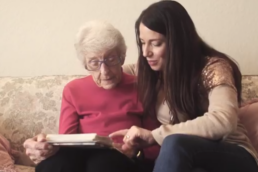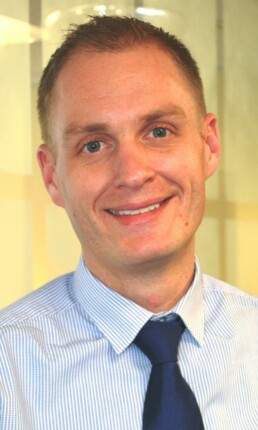We All Prosper When Seniors Stay in Their Communities
Millie, a resident of Ecumen Detroit Lakes, talks about the true meaning of living in her community.
Aging in Place: Northfield Couple Builds an Inspired Forever Home
Most people want to keep living in their home as they age, but the home becomes the enemy. A Northfield couple worked with renowned architect Michael Graves to build a house specifically designed to accommodate aging.
Pioneer Press Story Focuses on Services to Keep Seniors in Their Homes
Most seniors want to stay in their own homes, but often they need assistance to make that happen. Increasingly, home care services and community programs are becoming widely available, but connecting seniors with the services they need can be challenging.
Aging in Place: High Demand in Search of Solutions
Survey after survey affirms that the vast majority of people plan to age in their own homes rather than downsizing or moving to retirement communities. And most experts tend to agree it’s a worthy goal — but one that requires a lot of preparation.
As aging in place builds momentum, so does the commentary. In the past couple of weeks, we’ve noted these particularly insightful items:
- The number of households headed by someone age 70 or older will surge by 42 percent from 2015 to 2025, according to a report by the Joint Center for Housing Studies of Harvard University entitled “The State of The Nation’s Housing.”
- The National Association of Homebuilders (NAHB) now estimates that over 70 percent of homeowners doing a remodeling project are planning for the future needs of themselves or their parents. This trend has become so prevalent, that the NAHB established the Certified Aging in Place (CAPS) designation, where select builders and remodelers become certified as an Aging in Place Specialist. A CAPS Specialist is trained in Universal Design Principals, which makes a home more livable for all ages and stages of life.
- Aging in place expert Louis Tennenbaum writes that “aging in place is the best long-term care strategy.” But, he points out, you have to have a well-thought-out strategy for how to make it work.
- Because things can and do go wrong. Howard Gleckman writes at Forbes.com about a new study from University of Minnesota that shows frail seniors who live at home are hospitalized more often. It points to gaps in care that can occur in the home setting.
Clearly, there is a lot to sort out here. Who will bring an integrated “aging in place and community” solution to the marketplace that combines housing design/remodeling, wellness services that help keep people healthy longer, physician visits, financial modeling and planning, and ultimately at-home services, care and engagement?
We invite you to share your thoughts in the “comments” section below.
Last Week's Top 5 Blog Posts- July 14
In case you missed one, here are the blog posts our online visitors found most interesting last week:
Gus the Dog Charms Ecumen Lakeview Commons Residents
The 20 Basics From Ritz-Carlton- Have You Experienced Them?
Ecumen Names Directors To Head Expanded Alzheimer's Care Program
"A Dance To Remember" at Ecumen Detroit Lakes
To read more Changing Aging blog posts or to learn more about Ecumen, please visit www.ecumen.org!
Ecumen Receives Shavlik Family Foundation Grant for Technology at New Detroit Lakes Center
The Shavlik Family Foundation has awarded Ecumen an $11,750 grant to bring the latest digital technology to seniors at its new aging services hub in Detroit Lakes, Minn.
Construction currently is underway for an addition to Ecumen Detroit Lakes designed to transform how senior support services are provided in the area. The project, called The Commons, is envisioned as an innovative "one-stop aging services hub” that integrates technology, socialization, fitness, nutrition and health care to help keep seniors in rural Becker County healthy and independent.
The new addition, expected to open in late summer or early fall, will include a therapy center with a hydrotherapy pool, a wellness center with a bistro, a telehealth center and a business center. The Shavlik Family Foundation grant will help equip the business center.
The business center will offer seniors in the community access to user-friendly technology including high-speed Internet service and other digital and electronic resources such as email access and Skype, iPads, touch-screen computers, wireless printers, as well as faxing, scanning and copying equipment. The center will serve the entire Detroit Lakes and surrounding area, not just residents of the campus.
“We view The Commons approach as a prototype for how senior services will be delivered in rural areas in the future,” said Janet Green, executive director of Ecumen Detroit Lakes. “We are so grateful to the Shavlik Family Foundation for understanding the critical importance of technology in helping seniors age in place and stay connected to the community.”
The Shavlik Family Foundation, of White Bear Lake, Minn., was started by Rebecca and Mark Shavlik with part of the proceeds from the acquisition of their company Shavlik Technologies in 2011, and “recognizes that access to information and technology is a basic need in our modern society and created the Foundation to provide grants to Minnesota-based non-profits to enhance access to and knowledge of technology for non-profits and the people they serve.”
Green said the hub will be a place for people in the community “to learn and have fun,” as well as a place to come for healthcare services. Although seniors are expected to be the primary users, she said the hub will have programs that cross generations.
“We have to reinvent how we care for seniors, especially in rural communities,” Green said. “Using the hub concept and the latest technology we plan to create an environment where seniors can find all the services they need to stay healthy and live independently in their homes — and stay connected to the community.”
A St. Paul Centenarian’s Determination To Stay in Her Home and the Village That Makes It Possible
Marjorie Belmonte just turned 102 and still lives at home — alone in her pink house in West St. Paul, Minn. And that’s exactly how she likes it. But it takes a village. Her children, neighbors, friends, church and a non-profit senior services organization all pitch it to honor her foremost wish to stay in the home where she has been since 1981. Marjorie has packed a lot of living in this past century, and St. Paul Pioneer Press columnist Molly Guthrey tells this centenarian’s story of determination.
The Village Model of Aging-in-Place Gaining Momentum
Most seniors still prefer to stay in their homes if they can, and a recent trend is toward the “village” cooperative model of assisted living where communities of seniors ban together to help one another age well in their own homes.
Groups of seniors create a membership organization that runs programs and assembles services to keep seniors in their homes and to help them live life to the fullest.
One of the pioneering village organizations is Mill City Commons in Minneapolis, which Ecumen had the honor of helping start. On its website, Mill City Commons describes it work this way: “By offering a wide variety of services – from in-home preferred vendor lists, cultural and social events and member-to-member volunteer opportunities to health and wellness programs, educational and special interest programs and community service – Mill City Commons fulfills its mission: to connect its members with the services and information to live their lives to the fullest for as long as they choose to live in our Riverfront neighborhood.”
NBC News anchor Brian Williams recently highlighted the village model in an interview with his wife’s parents, who are part of a Connecticut cooperative called Staying Put.







